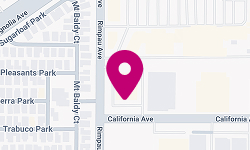- Free Consultation: (888) 883-6588 Tap Here To Call Us
Do You Have To Sign That New Arbitration Agreement At Work In California

In recent years, many California employees have been asked to sign new arbitration agreements as a condition of continued employment. These agreements typically require workplace disputes to be resolved through private arbitration rather than through a public court. Employers often present such agreements as standard documents, sometimes during onboarding, promotions, or company policy updates. An employee may feel pressured to sign without fully understanding the legal implications. Refusing to sign can create tension in the workplace, while signing may limit important rights under state and federal law. Understanding how California law addresses arbitration agreements is essential for anyone facing this situation.
What Arbitration Agreements Mean Under California Law
Arbitration agreements are contracts in which an employee agrees to resolve disputes with the employer through arbitration instead of litigation. Arbitration is a private process, where a neutral arbitrator decides the outcome rather than a judge or jury. While arbitration can be faster, it often restricts procedural rights available in court, such as broader discovery and jury trials.
California has enacted specific protections to regulate the use of mandatory arbitration agreements.
Under California Labor Code §432.6, which took effect January 1, 2020, employers could not require arbitration agreements as a condition of employment, continued employment, or receipt of employment-related benefits. This statute made it unlawful to retaliate against an employee who refuses to sign an arbitration agreement.
However, California’s Labor Code §432.6 has not been upheld; the Ninth Circuit Court of Appeals, in Chamber of Commerce of the United States v. Bonta (2023), ruled that the Federal Arbitration Act (FAA) preempts the law entirely because it discriminates against arbitration agreements. This decision overturned a previous panel decision that had found portions of the law could be enforced, allowing California employers to require arbitration agreements as a condition of employment.
Federal Law And The FAA
The Federal Arbitration Act (FAA), codified at 9 U.S.C. §1–16, strongly favors enforcement of arbitration agreements. In the past, courts have invalidated state laws that directly conflicted with the FAA. Employers often rely on this federal authority to enforce arbitration agreements.
Nevertheless, if an employee voluntarily signs, the agreement is likely enforceable under both federal and state law.
Rights Employees Retain Even With Arbitration Agreements
Even when arbitration agreements are enforceable, California law preserves certain rights. For example, , California law provides that certain claims—such as those brought under the Private Attorneys General Act (PAGA), codified at California Labor Code §2698 et seq., may not be forced into arbitration. The California Supreme Court in Iskanian v. CLS Transportation Los Angeles, LLC held that PAGA claims could proceed in court, though federal courts continue to examine the relationship between the FAA and PAGA.
Issues With Unconscionability
Arbitration agreements may also be challenged under California contract law principles if they are found to be unconscionable. Under Civil Code §1670.5, courts may refuse to enforce contracts or clauses that are overly one-sided or unfair.
Unconscionability can be procedural, such as presenting agreements on a “take it or leave it” basis without opportunity for negotiation, or substantive, such as provisions limiting damages or requiring employees to pay excessive arbitration costs. California courts carefully review arbitration agreements for fairness to ensure they do not undermine statutory employee protections.
Why Legal Guidance Matters
Arbitration agreements can significantly affect how workplace disputes are resolved. Many employees sign without understanding that arbitration often favors employers by limiting procedural rights and keeping disputes confidential. Reviewing the agreement with an attorney can help determine whether the terms are lawful, whether provisions may be challenged, and what rights remain protected under California and federal law.
Frequently Asked Questions About Arbitration Agreements In California
What Is An Arbitration Agreement In Employment?
An arbitration agreement is a contract requiring disputes between an employee and employer to be resolved through private arbitration instead of a public court.
Can An Employer Require The Signing Of A New Arbitration Agreement?
Yes. It is inaccurate to say that California Labor Code § 432.6 has been upheld. This law, which banned mandatory employment arbitration agreements, was struck down in its entirety by the Ninth Circuit Court of Appeals in February 2023.
The law’s complex legal history includes:
- A temporary injunction: California enacted Assembly Bill (AB) 51 in 2019, adding Labor Code § 432.6, which aimed to prevent employers from requiring arbitration agreements for employment claims as a condition of employment. A federal district court immediately issued a preliminary injunction to block the law, finding it was likely preempted by the Federal Arbitration Act (FAA).
- An initial, overturned ruling: A divided panel of the Ninth Circuit initially reversed the injunction in September 2021, allowing most of the state law to take effect. However, the court’s reasoning was narrow and controversial, as it still barred the criminal and civil penalties associated with the law if an arbitration agreement was actually signed.
- The final decision: After a rehearing, the same Ninth Circuit panel reconsidered its ruling and, in February 2023, affirmed the district court’s injunction against AB 51. The court found that the law was preempted by the FAA because it was an obstacle to the FAA’s policy favoring arbitration.
What this means for California employers
As a result of the final ruling, California employers covered by the FAA can once again require job applicants and employees to sign arbitration agreements as a condition of employment.
What Happens If An Employee Refuses To Sign An Arbitration Agreement?
Refusing to sign may result in termination, discipline, or denial of employment benefits. Retaliation in that form for refusal may actually be protected under Federal law.
Are Arbitration Agreements Enforceable In California?
Yes, arbitration agreements can be enforceable even if not voluntarily signed, provided they comply with federal law and are not unconscionable.
Can An Arbitration Agreement Waive The Right To Bring PAGA Claims?
Generally, no. The California Supreme Court in Iskanian v. CLS Transportation held that PAGA claims cannot be waived through arbitration agreements, although federal court interpretations continue to evolve. An arbitration agreement cannot categorically waive an employee’s right to bring representative PAGA claims, as a categorical waiver violates public policy and is unenforceable.
While the U.S. Supreme Court’s decision in Viking River allows for individual PAGA claims to be arbitrated, the California Supreme Court in Adolph confirmed that an employee retains standing to bring claims on behalf of other employees even after their individual claims are compelled to arbitration.
What Is Unconscionability In Arbitration Agreements?
Unconscionability refers to contracts that are overly unfair or one-sided. Agreements may be invalidated if they impose excessive costs, limit damages unlawfully, or are imposed without meaningful choice. Unconscionability in arbitration agreements refers to terms that are so unfair, oppressive, or one-sided that they shock the conscience of the court, making the agreement unenforceable.
To prove an arbitration agreement is unconscionable, the party challenging it must show procedural unconscionability, meaning there was a flaw in the bargaining process (like unequal bargaining power or a “take-it-or-leave-it” situation), and substantive unconscionability, meaning the contract’s terms are unreasonably favorable to the other party.
Can An Employee Be Pressured Into Signing Without Time To Review?
Agreements presented on a take-it-or-leave-it basis without time for review may be considered procedurally unconscionable, and courts can strike unfair provisions.
Are Arbitration Proceedings Confidential?
Yes. Arbitration proceedings are generally private, and decisions are not part of the public record, unlike court proceedings.
What Should Be Done Before Signing An Arbitration Agreement?
Before signing, reviewing the agreement with an employment attorney is advisable to understand rights, obligations, and potential consequences under California law.
Call The Law Office Of Joseph Richards, P.C. Today
Arbitration agreements can significantly impact employee rights in California. Understanding the protections under state and federal law is critical before signing any new employment contract. Law Office of Joseph Richards, P.C., represents employees across California in matters involving arbitration agreements, retaliation, and workplace rights.
Contact the Orange County employment law attorney at Law Office of Joseph Richards, P.C. by calling (888) 883-6588 to receive your free consultation. The firm represents clients throughout the state of California and is committed to protecting employee rights under California law.
























